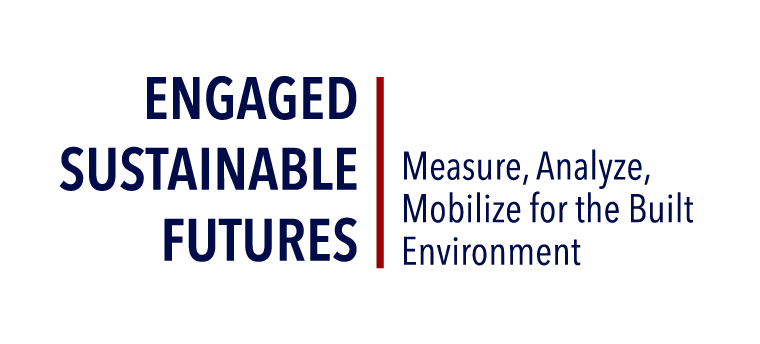
Engaged Sustainable Futures - Measure, Analyze, Mobilize for the Built Environment (ESF MAM-BE) offers a platform for interdisciplinary ventures that aim to uncover the many possible sustainable futures of the built environment. Based in the Department of Architecture at the American University in Cairo, ESF MAM-BE achieves its vision through research, pedagogy, and creation.
From the finest building details to the city-scale, we believe that seeing, designing, making, using, experimenting, and developing are the foundational means towards all sustainable futures. Our vision is for the built environment to become a space for collective action driven by reliable information, where sustainable practices can be based on human intuition and basic design principles driven by science, skill, and ethics.
Our research agenda includes theoretical, applied, and experimental projects that expand our collective understanding of sustainability and its application in the built environment. Our activities also extend to comprise research-creation and artistic endeavors that explore the futures of the built environment and raise awareness on the need for attaining sustainability. Teaching activities offered through ESF MAM-BE drive students and designers to speculate and imagine future scenarios and respond to the uncertainties the built environment might hold in the future.
We embrace the complex social, economic, environmental dimensions of sustainability and accept that attempting to attain it requires navigating many controversies and paradoxes. We recognize that any activity in the built environment is embedded in a locality and that any future is inherently linked to a past and present. Our activities take cautious risks with the objective of finding the intricate equilibriums necessary between the many tensions that define sustainable design today: the qualitative-quantitative, the local-global, the micro-macro, the technological-human, the judgment-calculation, and the experimental-prescriptive dimensions.
We envision a world where actors can build, create, and collaborate on a global stage that is inclusive and responsive to urban dwellers' social, economic, and environmental needs and aspirations. We recognize that creating a sustainable built environment is contingent on engaging all concerned stakeholders. Thus, we aim to create a knowledge exchange platform that effectively brings together researchers, students, community actors, entrepreneurs, as well as the broader community.
SCOPE OF ACTIVITIES
Measure: Reducing Uncertainty
At ESF MAM-BE, we expand the definition of measurement beyond simple quantification to think of it as a process of reducing uncertainty. In this level of activities, the aim is to collect, unify and organize information to fill data gaps about the built environment. These could be through laboratory, field, or digital experimentation that results in quantitative and numerical data. One example could be collecting energy metrics. It could also entail collecting or documenting phenomena in the built environment that are less quantifiable. One example could be documenting the experiential qualities of a space or the histories and stories of inhabitants.
We identify critical data gaps to be bridged to inform sustainability research and practice in the built environment. We design, plan, and execute data collection projects and strive to share this data with a broad audience.
Analyze: Giving meaning
It is only by looking at information in novel and innovative ways that new knowledge can be created. At ESF MAM-BE, we strive to make sense of data to bring forward new insights and understandings for researchers and practitioners of the built environment.
In many activities, data analysis entails the treatment of quantitative field or simulation data mathematically using descriptive, diagnostic, predictive, and prescriptive methods. This line of work helps us develop simplified analytical or predictive models for phenomena we observe in the built spaces.
Another important line of work is developing, testing, and deploying qualitative analysis methods. Qualitative modes of analysis are fundamental in design and architecture, with deliberation and judgment often viewed as a tradition in these fields. Thus, we work to inform these qualitative processes by developing and testing comparative, observational, theoretical, phenomenological, evaluative, contextual, and social-psychological frameworks to look at the built environment.
We also strive to utilize developing technologies, such as computational and artificial intelligence, to improve our analysis processes and combine the qualitative and quantitative dimensions.
Mobilize: Activating ideas
The mobilization of knowledge is a critical step in the research process. At ESF MAM-BE, we endeavor to find new ways to disseminate and share knowledge with the broader community to facilitate real-world impact on society, practice, research, and policy. But beyond the simple sharing of knowledge in traditional academic venues, we strive to develop interactive and engaging ways that we can active our work.
That’s is why, we aim to engage in all forms of communication, from formal to artistic.
OUTPUTS & CONTRIBUTIONS
Open Calls and Opportunities
At ESF MAM-BE, we also strive to utilize developing technologies, such as computational and artificial intelligence, to improve our analysis processes and combine the qualitative and quantitative dimensions.
